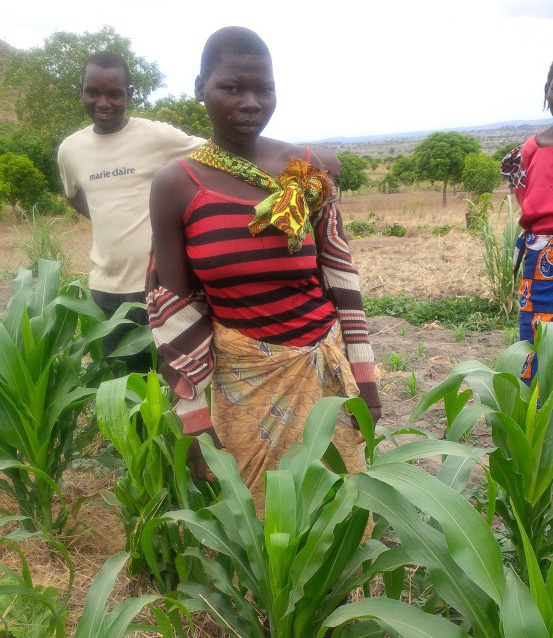When I talk to them on skype, they like to feed me food through the screen. While this is not “typical” boy play, and I don’t know many boys that ever requested kitchens for their birthday, this is very normal since my brother is a chef. My brother loves to cook and experiment in the kitchen. Since my nephews could walk, they’ve been helping my brother— stirring, pouring and even chopping (under very close supervision). They imitate him because they see this behavior often. They imitate him because they see this as something fun to do. What behaviors do the kids in your life imitate?
Recently, I visited our nutrition and agriculture projects in Dedza, Mafuwa A Moto, an hour and a half away from Lilongwe the capital of Malawi. I wanted to see how the families were progressing with their agricultural practices; practices which may help soften the blow of El Nino. We had already heard reports of food shortages and increased child malnutrition from the local health center.
What was really encouraging was a not-sosuccessful vegetable garden; a garden that was started by kids.
The Government of Malawi is working with the World Food Program, UNICEF, and Non -Governmental Organizations to prepare for what is predicted to be the worst drought and flood season due to El Nino in the last 30+ years. In Dedza, I visited the vegetable gardens and the liquid manure and compost pits that were started after our trainings. The vegetable garden would supplement some of the family’s food needs, especially when they don’t have money to buy vegetables. Some of vegetable gardens looked good and the families told me that they didn’t have to spend money to buy vegetables because they were growing their own. Others showed me their compost pits and liquid manure, which they plan to use in their gardens as fertilizer. With the poor soil quality and the high price of fertilizer, families need to adopt these practices. In a couple of the villages, households were jointly caring for a tree nursery. They wanted to plant fruit trees so that they can have access to fruits year round. The trees can also be used for firewood and house construction. They realized the rate at which they were cutting down trees; they wouldn’t have any more trees in the future.
These were really encouraging stories because these families were planning ahead and using the knowledge they gained to improve their family and community. However, while these examples were great, what was really encouraging was a not-sosuccessful vegetable garden; a garden that was started by kids. The kids put up a fence to keep the goats and chickens out. They planted seeds; however, the task of walking 20 minutes daily to get water was too much for them. They failed to water their plants and nothing really grew. While this was not successful, it did show me that these kids were mimicking their parents. They saw what their parents were doing and it looked fun enough to them that they wanted to imitate and “play” gardening. This disclosed to me that the parents were caring for their garden on a regular basis and it has become a family affair.
Maybe, when these kids get older, they won’t mind walking 20 minutes to fetch water and they will also be able to start gardens that will feed their family. Maybe, we can change the next generation’s agricultural practices so that everyone will be more food secure.
Blessings,

